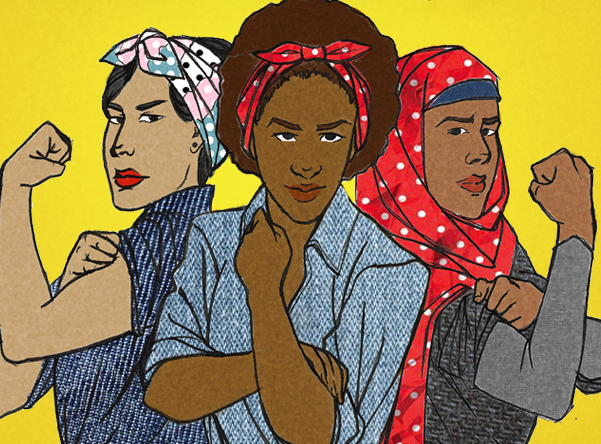Kimberle Crenshaw’s concept of intersectionality is
considered to have transformed what was formerly seen as isolated and
individual within the discourse of identity-based politics. It denotes the
various ways in which race and gender interact to shape the many dimensions of a
black women’s experience. The premise is: many experiences black women face cannot
be considered within the traditional boundaries of race or gender
discrimination. Rather, the intersection of racism and sexism factors into
black women’s lives in ways that cannot be captured by simply looking at the
single dimensions of race or gender in those experiences separately.
Socio-Lingo: Let's Talk Sociology
Saturday, April 16, 2016
KIMBERLE CRENSHAW’S CONCEPT OF INTERSECTIONALITY
NEW INSIGHTS FROM THE HISTORY OF AFRICAN INTELLECTUALS
African intellectuals like Kwame Nkrumah, Julius Nyerere,
Toya Soga and Steve Biko were all critical of Western ideals and the role they
played in African contexts. Their premise is simple: Africans have always had,
and will always have, a distinct social system of equal value to a Western
system. Showing this from different perspectives and historical epochs, each of
these African intellectuals offer an alternative sociological analysis to South
African society. By and large, their contributions have made less of an
appearance in South African sociology. This is perhaps the consequence of an
education system that has not truly been “decolonized” – a project currently on
the agenda of student movements across South Africa.
Dating back to the South African colonial days, Toya Soga was
influential in his responses to colonial order. As a high-ranking Christian
minister, educated in Scotland and married to a Scottish woman, Soga was radical in his
commitment to Christianity and simultaneous cultural integrity. He understood
how a Western religion could be reconciled with African tradition and promoted
the value of African societies. From Soga, we see how African-ness co-existed
with “British civic nationality” in a potentially meaningful and socially (re)productive
way. His intellectual attention to the cultural/religious project of colonial
rule greatly influenced the political movements that followed after him. As a
consequence of his views, other African intellectuals, like John Tengo Jabavu,
began to challenge the subservient role in society which most colonialists
expected blacks to adopt.
In post-colonial Africa, Kwame Nkrumah and Julius Nyerere
echo a similar sentiment towards “African-ness”. Nkrumah saw the value of
African systems and argued that economic and political subjugation of
colonialism conflicts with the original humanist (and inherently socialist)
principles underlying African society, and must therefore reassert itself in
post-colonial society. Likewise, Nyerere apprehends the value of African
humanism as the foundation upon which pre-colonial Africa existed and thrived.
For both of these intellectuals, the impact of colonialism infiltrated African
thought and philosophy to the detriment of African progress.
These insights are telling of the functioning of
pre-colonial social and political life and support a task of de-colonization that
demolishes the roots of oppression in a system that rejects the legitimacy,
sufficiency and ability of traditional African systems. Steve Biko was resolute
in his belief that African culture is not time-bound. Present-day capitalism,
neocolonialism and neoliberalism continue to present themselves as the norm,
but these intellectuals show how Ubuntu or African humanism directly offers an
alternative to that norm. This alternative is brought to light by a deep
African understanding of African culture.
Tuesday, October 6, 2015
Good Leadership: Power and Privilege
When people speak of privilege it is often
synonymous with White privilege. However, in addition to this, people need to be aware of the relativity of privilege. The relativity of privilege is dependent on the
environment in which one finds oneself. An individual might find
himself/herself more privileged in one context, and then less privileged in
another. The reason for this being the power relations which exists to create a
privileged position. My understanding is that power in this context refers to
the ability of a person relative to another/other people. From this conception
of power it becomes clear that there exists a level of inequality between what
people can and cannot do, i.e. abilities. If one understands privilege from
this position one can begin to extend the notion beyond just White privilege
and see that everyone has a degree of privilege in some respect.
Sometimes
You’re a Caterpillar (see video above) also shows how ability, power
and privilege are related. The snail is inable to wriggle under the fence
because of its shell unlike the
caterpillar who does so with ease. The point, however, is not to merely understand
privilege but be aware of it and determine your response to it. Being aware of
one’s position of privilege should spur one on to the struggles of other less
privileged individuals. This takes a conscious effort to dismiss unproductive
feelings of guilt and use your privileged position to “even the playing ground”
and balance out the power relations. In my personal experience, this often
proves to be the challenge.
Monday, August 18, 2014
What's This All About?
Hello world!
I'm a sociology major and this is a space for me to break away from the academic sphere and pursue what interests me. I will be posting all things sociologically related (which is very broad). My aim is to create a fun space and reveal the relevance of my major in the world today.
So let's talk Sociology....
I'm a sociology major and this is a space for me to break away from the academic sphere and pursue what interests me. I will be posting all things sociologically related (which is very broad). My aim is to create a fun space and reveal the relevance of my major in the world today.
So let's talk Sociology....
Subscribe to:
Posts (Atom)

